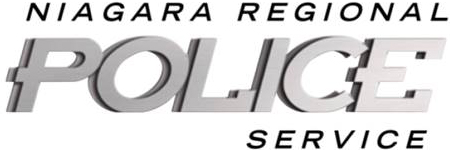
The Office of Corporate Strategy and Innovation in the Service integrates its four mandates—Strategic Planning and Corporate Analysis, Enterprise Project Management (EPM), Continuous Improvement (CI), and Crime Analysis—to create a cohesive approach to organizational growth and effectiveness. Strategic Planning and Corporate Analysis lay the groundwork for decision-making, guiding the Service’s objectives based on comprehensive analysis and forecasting.
Enterprise Project Management translates these strategic priorities into actionable projects, ensuring alignment and resource efficiency across initiatives, with each project reinforcing the Service’s mission.
Continuous Improvement complements these efforts by fostering a culture of adaptability, encouraging constructive feedback and innovation, and ensuring that lessons learned are integrated into ongoing planning and operations.
Crime Analysis supports this framework by supplying critical insights into crime trends and community needs, informing both strategic goals and immediate tactical responses.
Together, these mandates create a dynamic cycle of planning, execution, evaluation, and adaptation, allowing the Service to be proactive and responsive to the evolving needs of the Niagara community.
Here is a more detailed outlook of each mandate:
| 1- Strategic Planning and Corporate Analysis |
| Corporate Analysis supports Strategic Planning by supplying crucial information for decision-making, while strategic planning leverages this analysis to create actionable, future-oriented goals that strengthen the Service’s ability to meet the demands of the Niagara community. Together, they create a cycle of planning, executing, analyzing, and adjusting that enables continuous growth and adaptation. The Corporate Analyst is responsible for the management of the organization’s strategic planning process and conducts internal and external research to make or evaluate recommendations to ensure the Service is well-positioned to meet the changing needs of the community and the Service. |
| 2- Enterprise Project Management |
| The mandate of EPM focuses on aligning the organization’s strategy with its enterprise programs and projects, ensuring that each initiative directly supports overarching goals. EPM manages the portfolio of enterprise-level projects, prioritizing those with the highest potential for return on investment and efficiency gains. By overseeing resource allocation and project selection, EPM ensures that time and funding are spent on the most impactful initiatives. Additionally, EPM plays a critical role in bringing strategic issues to the Executive Leadership Team (ELT), enabling informed and effective decision-making at the highest level. |
| 3- Continuous Improvement |
| The CI mandate emphasizes fostering a culture of growth and adaptability across the Service. Key aspects include encouraging challenging questions, rewarding passion, and creating an environment open to change by recognizing those who advocate for it. Success is celebrated by giving voices to those driving meaningful change, while failure is embraced as a learning tool, with a shared vision guiding members towards improvement. CI leaders in this office act as change agents, modeling behaviors and listening to feedback, adjusting strategies as needed. Training on CI concepts is also part of this mandate and it is essential for embedding CI across the organization, alongside tracking progress and reporting outcomes to ensure measurable growth. The office advises the Executive Leadership Team on CI strategies and consults with management to identify and address areas needing improvement based on real data, ultimately modernizing essential business processes. |
| 4- Crime Analysis |
| The Crime Analysis mandate focuses on the comprehensive analysis of crime trends, patterns, and problems. This is done through collecting, processing, and analyzing crime data using statistical methods and software tools to identify strategic and tactical insights that inform the allocation of police resources and the development of crime reduction strategies. By also studying crime types, locations, and times, Crime analysts provide actionable intelligence that helps prioritize resources, target repeat offenders, and address emerging crime problems effectively. Collaborating with leadership across the Service to align with organizational goals and priorities, as well as fostering partnerships with external agencies and stakeholders to improve data sharing and collaboration efforts. |
Contact Information
Rany Audeh
Manager of Corporate Strategy & Innovation
Email: rany.audeh@niagarapolice.ca
905-688-4111, ext. 8308
 I'd Like To
I'd Like To





 Subscribe to this Page
Subscribe to this Page